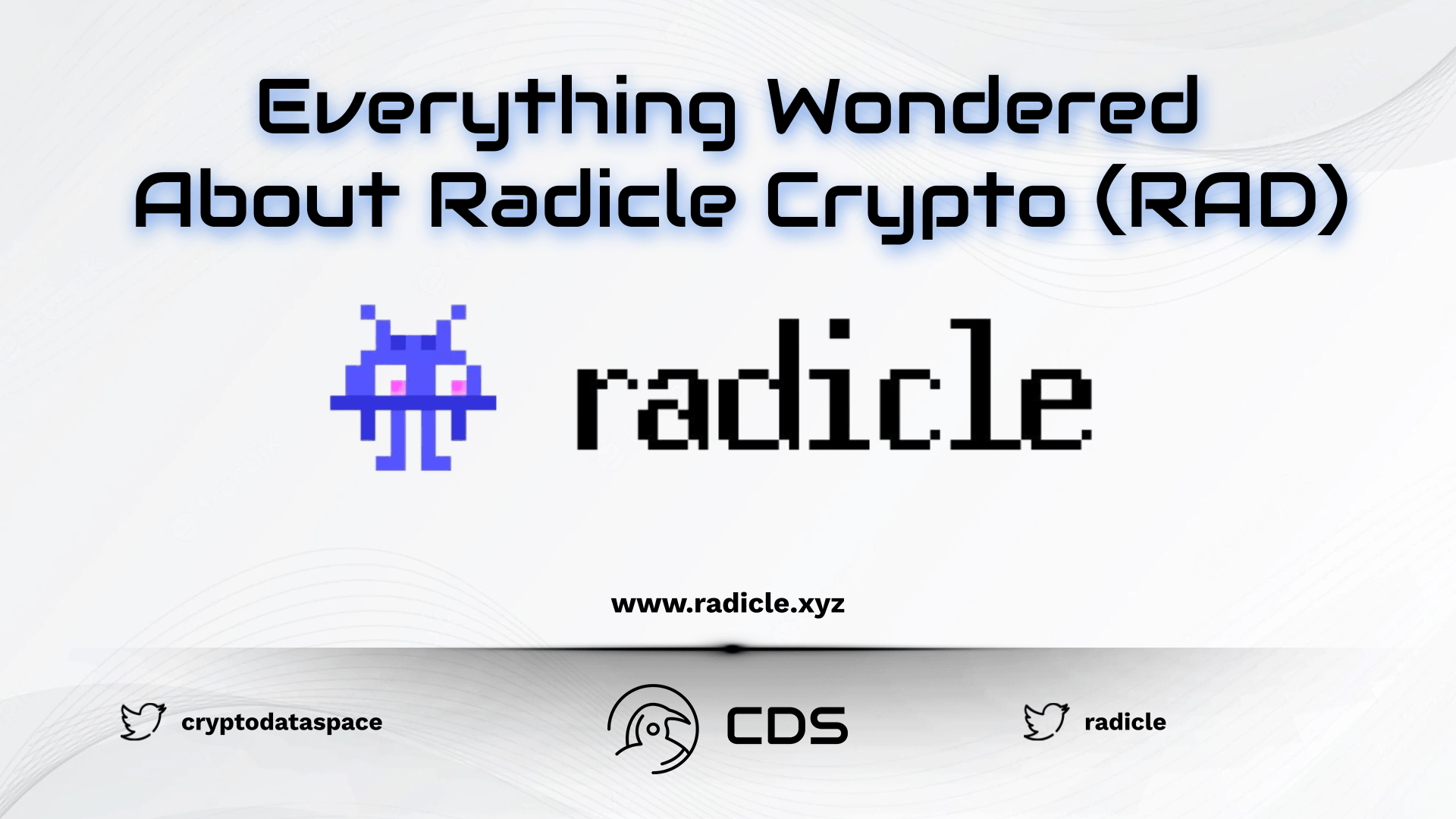Radicle crypto is one of the most talked about projects today. The company, which acts with the motto “Sovereign code infrastructure” written in the biography section of the Radicle Twitter account, has brought a whole new breath to crypto. In this article, we will review Radicle and its token, RAD.
Everything Wondered About Radicle Crypto (RAD) – 2023

Radicle crypto is a peer-to-peer, open-source software collaboration network. The network is based on Radicle Link, a Git-based protocol for gossip replication. To safeguard project data, the protocol has an opt-in integration with Ethereum. Users can also manage and fund decentralized software initiatives with it. The Radicle DAO and Treasury provide access to the Radicle code and Ethereum integration to the general public.
What is Radicle Crypto?
The Radicle governance token, designated as RAD, is used for both communal ownership and governance. Because a DAO owns Radicle crypto, anyone with RAD tokens can cast a vote for the project’s direction. Moreover, users can select whether or not to pay fees for Radicle’s Ethereum integration, which then accrue in the project’s treasury. Holders of tokens are entitled to discounts or fee exemptions, and they can use the native token to pay for services and support development teams.
Radicle Crypto’s Special Qualities

While the platform has many significant features, the following two stand out the most.
Radicle Link
Peer-to-peer gossip protocol Radicle Link has an adaptable distributed version control backend. Despite the fact that its initial implementation is concentrated on supporting Git, it wants to be sufficiently open to be used on top of other systems, such as Pijul or Mercurial.
Git repositories may be hosted and shared without the necessity of centralized servers thanks to the protocol, which distributes them using gossip-based replication. Repositories are referred to as projects on the Radicle network.
Radicle Link makes it possible for participants to integrate into numerous upstreams through remotes rather than a single canonical “master” branch, creating a cooperative bazaar-style approach.
A Collaborative Stack for Peer-to-Peer Coding
By introducing a peer-to-peer replication layer to distributed version control systems, beginning with Git, Radicle carries out the Scuttlebutt social overlay philosophy. User accounts and login are replaced by public-key cryptography, hosted issue trackers are replaced by local peer replication, and the idea of a single canonical upstream is replaced by a patch-based peer-to-peer or bazaar model.
Who Are Radicle Crypto’s Founders?

Monadic, a Berlin-based software business focused on open-source software cooperation, created Radicle. The software company emphasizes that Radicle is an open-source project that anyone may use, edit, and contribute to and that Radicle is not owned by the corporation. Although Monadic was established in 2017, work on Radicle didn’t start until 2018. Alexis Sellier and Eleftherios Diakomichalis are the leaders of Monadic.
About Monadic
A team of technologists by the name of Monadic set out in 2017 to reinvent the way people collaborate on free and open-source software. Then, they constructed the P2P code collaboration network Radicle.
Radicle Crypto Tokenomics

Radicle is a project that calls itself an “open-source, community-led, and self-sustaining network for software collaboration.” It is powered by the ERC-20 token known as RAD. The token is intended to be a governance token that enables a number of Ethereum-based functionalities as well as the community ownership, governance, and long-term sustainability of the Radicle network. When interacting with Radicle smart contracts, the RAD token can enable lower or no fees in addition to enabling voting and proposal governance.
Token Allocation
A decentralized autonomous organization (DAO) governs the Radicle Treasury and associated protocols. The “one token-one vote” governance model is used by the RAD DAO, which is a fork of the Compound protocol. 100,000,000 RAD tokens, which were not included in the initial protocol, were created on May 5, 2021. Depending on how they were distributed, these tokens become vested after one to four years:
- 50% of RAD tokens go to a community treasury.
- 19% is allocated to the team.
- 20% is allocated to early supporters.
- 11% is allocated to the Radicle foundation, as well as to network promotion and a proposed RAD-bootstrapping liquidity pool.
Price Prediction Radicle Rad

While we don’t have any comments on topics like “Is rad crypto a good investment?”, Radicle crypto price prediction 2030, or Radicle price prediction 2025, we can talk about Radicle crypto’s current data.
With a Max Supply of 99,999,620, the token’s circulating supply is currently only 49,829,111. At the time of writing, the RAD token is trading at $4.14, according to CoinMarketCap. In addition, the token price has increased by 58.58% in the last 24 hours. Moreover, the token is listed on exchanges such as Binance, Mandala Exchange, Huobi Global, Crypto.com Exchange, and Gate.io.















Leave a comment